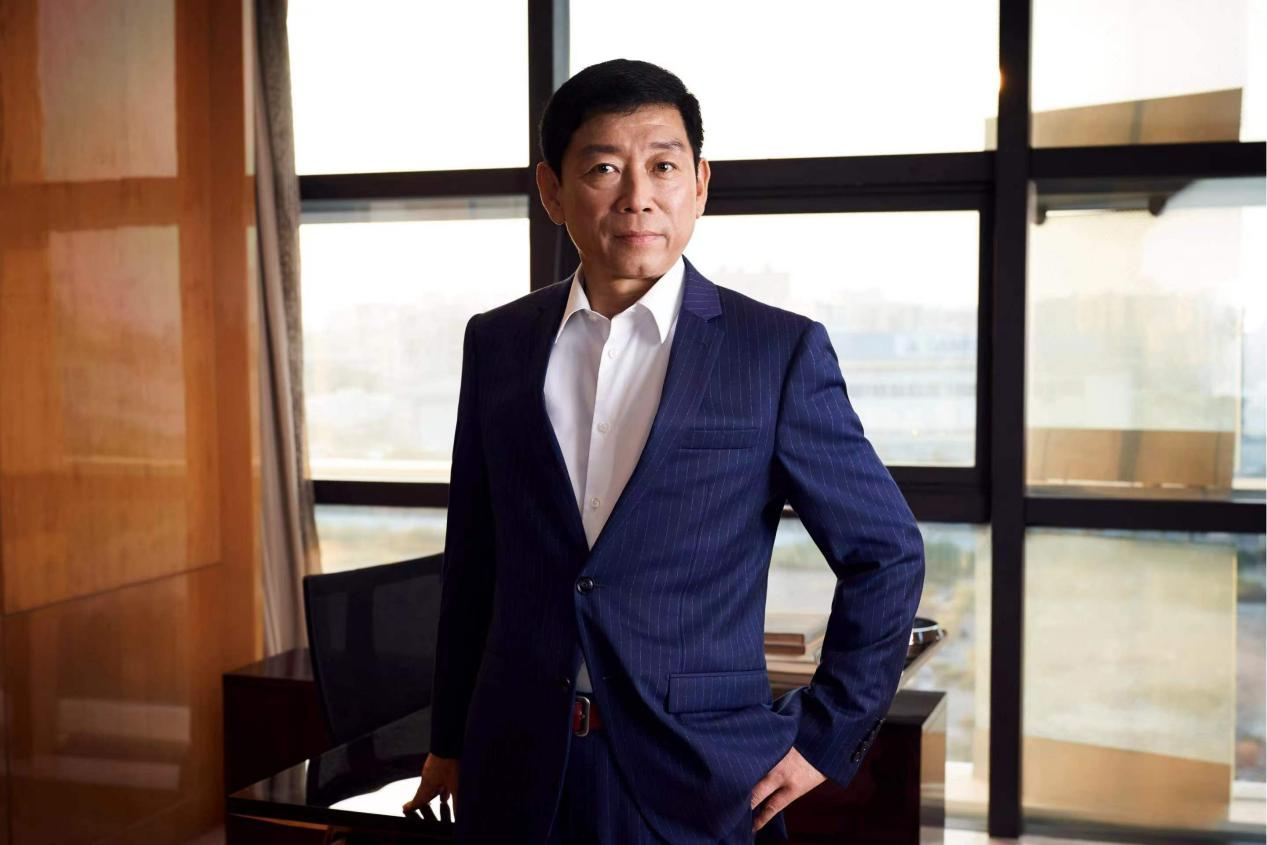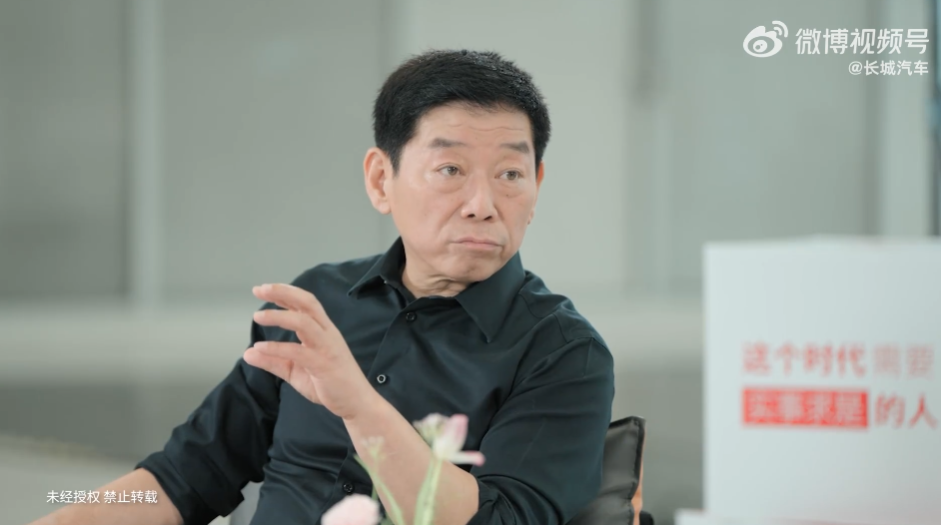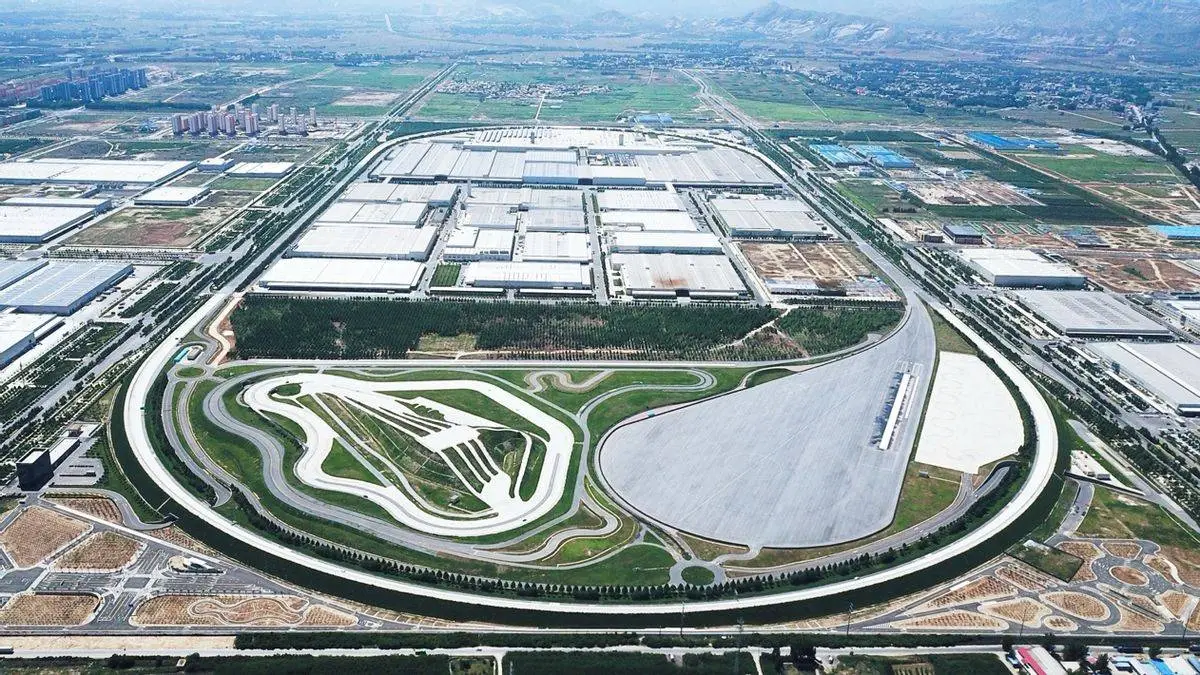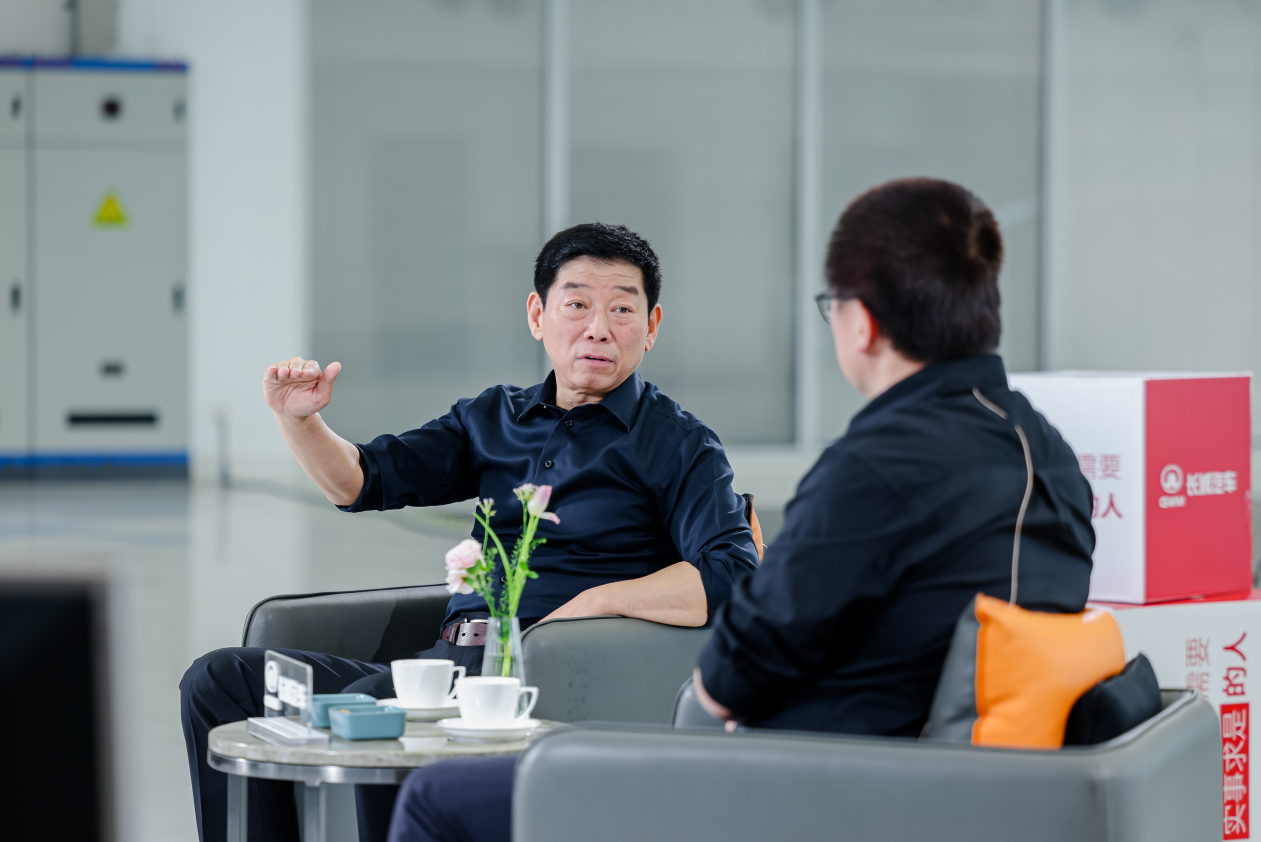China's Auto Industry: Time to Awaken!
![]() 05/26 2025
05/26 2025
![]() 678
678

Respect the laws of the automotive industry.
Written by | HSTS Zhang Jingbo
China's auto industry is experiencing its most enchanting moment: on one hand, domestic new energy vehicles are captivating the world, with the globe marveling at this Eastern miracle. On the other hand, the turmoil caused by fierce internal competition has cast a shadow over the sector.
At this critical juncture, industry veteran Wei Jianjun has once again stepped forward to voice his concerns.
[China's Auto Industry: Time to Awaken!]
"What kind of industrial product can be reduced by 100,000 yuan and still maintain quality assurance?"
On May 23, in an exclusive interview with Sina Finance, Wei Jianjun, chairman of Great Wall Motors, posed this poignant question.

In recent years, a fierce price war has been unfolding in the domestic auto market. Cars that originally cost over 200,000 yuan have plummeted to 120,000 to 130,000 yuan overnight.
In Wei Jianjun's view, this is an impossibility unless corners are cut!
The price war is a double-edged sword.
A year ago, when Wei Jianjun made this prediction, China's auto industry had just celebrated its annual production and sales surpassing 30 million vehicles for the first time, with the entire industry basking in the euphoria of scale.
However, soon after, a price war ensued.
Under fierce internal competition, some companies began selling cars below cost.
This kind of relentless vicious competition may seem to benefit consumers in the short term, but in the long run, it harms the entire industry and ultimately affects consumers.
Now, the echo of the prediction that the price war is a double-edged sword has not faded, and some companies have found themselves caught in a triple squeeze of financial fraud, vicious competition, and technological convergence under the coercion of capital.
This vicious cycle will spread to the entire industry chain.
Selling cars at a loss forces companies to reduce costs without底线, disrupting the stability and reliability of the upstream and downstream supply chain, thereby threatening the health of the entire industry chain.
Upstream, car manufacturers force suppliers to lower prices, and suppliers are compelled to cut corners to survive.
Downstream, dealers are struggling, with over 4,000 4S stores closing nationwide in 2024 alone, ultimately leading to numerous after-sales issues.
Car manufacturers themselves also suffer from reduced R&D due to the price war. But to compete, they desperately roll out parameters, and when that doesn't work, they resort to marketing packaging instead of technological breakthroughs.
As a result, various forms of chaos, such as false advertising of battery life, are constantly unfolding in the industry.
Some auto companies claim a battery life of 1,200 kilometers, but in reality, it shrinks to 600 kilometers in winter. They use autonomous driving as a marketing gimmick, only to claim it's assisted driving when something goes wrong.
This kind of over-marketing worries Wei Jianjun.
What worries him even more is that some auto companies have even begun financial fraud. "The automotive industry is a key pillar industry for our country's development. Don't let so many years of hard work go to waste."
At this point, Wei Jianjun became somewhat emotional.
This 35-year auto veteran's deep care for the industry and emphasis on consumer rights is evident.
Over the past year, he has withstood pressure and controversy, repeatedly calling on the industry to return to rationality.
For this, he has received a lot of criticism.
But Wei Jianjun, who cares deeply about the healthy development of China's auto industry, has not stopped. "As long as the industry can develop healthily, I'm not afraid of criticism."
Wei Jianjun's concerns are not imaginary.
In 2024, China's auto industry lost a total of 138 billion yuan due to the price war.
Millions of auto workers have worked tirelessly for decades and finally achieved today's prosperity. We cannot let internal competition ruin this promising future.
China's auto industry, it's time to awaken!
[Breaker: Wei Jianjun's Industrial Guardianship War]
The chaos underlying the prosperity of China's auto industry ultimately stems from fierce internal competition and relentless price cuts.
In this wave coerced by capital, there is an abundance of price wars, traffic competition, and impetuous marketing. Some people are lost in the pursuit of short-term interests and forget the essence of business: sincerity and integrity.
Behind a 100,000 yuan price reduction lies cutting corners and after-sales shrinkage.
In response, auto veteran Wei Jianjun stepped forward, exposing the truth of this industry chain and also prescribing his own remedy: adhering to the philosophy of integrity and confronting the era of traffic with hard work.
"There is no shortcut in car manufacturing. Only by rigorously pursuing quality can we justify every bit of trust from users."
Over the past 35 years, integrity has been the business ethics consistently pursued by Wei Jianjun.
When the industry fell into internal competition and crazy price cuts, Great Wall Motors still adhered to the bottom line of quality, did not engage in false advertising, and did not play numerical games.
At the Great Wall Xushui proving ground, every new car must "withstand" at least 7,000 kilometers of testing, equivalent to 300,000 kilometers of daily driving by users.
The entire proving ground covers 13 modules and over 100 types of typical road surfaces, including high-speed loops, urban areas, and test mountains, which can simulate the user's full-scene driving environment.
Its testing standards are very stringent, ranging from cold testing at minus 40 degrees Celsius to 72 hours of continuous wading experiments.
This 500 million yuan investment, the largest safety laboratory in Asia, practices the Great Wall's car manufacturing philosophy of safety first in every detail.

In Wei Jianjun's view, cars are products related to life and cannot be taken lightly.
"Users are the most impartial judges, and safety is the most boring, hardest to perceive, yet most necessary thing to uphold."
Regarding exaggerated propaganda and cutting corners in the industry, Wei Jianjun resolutely resisted and always adhered to the bottom line of focusing on technology and safety without exaggeration.
Take Hi4 technology as an example.
Through configuration innovation, intelligent control, and an efficient three-electric system, Great Wall has solved the impossible triangle of performance, energy consumption, and cost.
It has made the noble four-wheel drive a thing of the past.
For such a revolutionary intelligent electric hybrid technology, Great Wall did not exaggerate various parameters but chose to compete with various extreme environments.
They tested thermal protection on the Flaming Mountains with a surface temperature of 70 degrees Celsius in Turpan and verified battery activity on the ice surface at minus 40 degrees Celsius in Mohe. Behind this is Great Wall's annual R&D investment of over 10 billion yuan.
Integrity is the foundation of corporate operation.
Great Wall's efforts have also been rewarded with authoritative industry certification and consumer support with real money.
In the J.D. Power China Vehicle Reliability Study, Great Wall's premium brand WEY ranked first among independent brands, significantly outperforming the industry average.
Wei Jianjun has proven with 35 years that true brand premium comes from user trust and concern for safety.
During the interview, Wei Jianjun mentioned honest operation multiple times. With a clear mind and deep concern, he strives to speak up for consumers and safeguard the healthy development of the entire industry.
[Industry Awakening: Let the Adherents No Longer Be Alone]
The automotive industry is one that cannot tolerate the slightest carelessness.
Any impetuousness and opportunism can harm the entire industry and even cause fatal consequences.
In the 1990s, the Japanese auto industry swept the world.
However, with the burst of the economic bubble, major automakers began to implement cost reduction and efficiency improvement measures, significantly compressing R&D and quality inspection costs.
Ultimately, this relentless cost compression triggered intense internal competition in the industry. Many companies resorted to risky measures and even began falsifying data to compete on parameters and maintain the myth of the past.
Starting from 2016, Japanese automakers such as Mitsubishi, Suzuki, Nissan, and Subaru were exposed for systematically tampering with data in fuel efficiency tests.
The Takata airbag incident in 2017 and the Kobe Steel fraud incident were even considered the biggest scandals in the history of the Japanese automotive industry.
Among them, the abnormal ejection of airbags caused by the Takata incident alone resulted in at least 28 deaths and over 400 injuries worldwide, ultimately leading to Takata's bankruptcy.
Moreover, the fraud incidents severely damaged the global image of Japanese cars.
The Japanese auto industry, which dominated the global market for decades and was powerful, still suffered unprecedented blows due to impetuousness and opportunism.
China's auto industry, which has just emerged globally thanks to the waves of electrification and intelligence, should take this as a warning: respect common sense, reject impetuousness, and return to the essence of manufacturing.
This is also what Wei Jianjun has been emphasizing repeatedly over the past year.
In this Sina exclusive interview, he once again stepped forward to speak up for the industry.

Wei Jianjun once said that cars are born global, and the natural mission of Chinese cars is to go deep blue and let the world see the confidence of Made in China.
However, he also pointed out: for Chinese cars to integrate into the global market and become a business card for Made in China, they cannot take stimulants or resort to opportunism.
Wei Jianjun is not alone.
Over the past year, many industry leaders such as Li Shufu of Geely and Zhu Huarong of Changan have come forward to express their concerns about fraud and vicious competition in the auto industry.
On May 20, the National Development and Reform Commission also spoke out again, specifically holding a press conference to emphasize that measures will be taken to comprehensively rectify internal competition.
The growing consensus in the industry has made Wei Jianjun a prophet in the auto industry.
In the past two years, every one of his industry-level suggestions pointing out hidden dangers and problems in industry development has been verified one by one.
Numerous industry practices have proven that: when the tide of price wars and capital recedes, only by respecting industry common sense can one forever stand at the top of the industry.
The automotive industry is related to trillions of output value, tens of millions of jobs, and national strategies. For China's auto industry to truly become global, it needs more "clear-minded" individuals to step forward.
——END——
Welcome to follow [HSTS], where you can recognize influential figures and read tales of strategy.
All rights reserved. Reproduction without permission is prohibited.
Some images are sourced from the internet.
If infringement is involved, please contact us for deletion.







